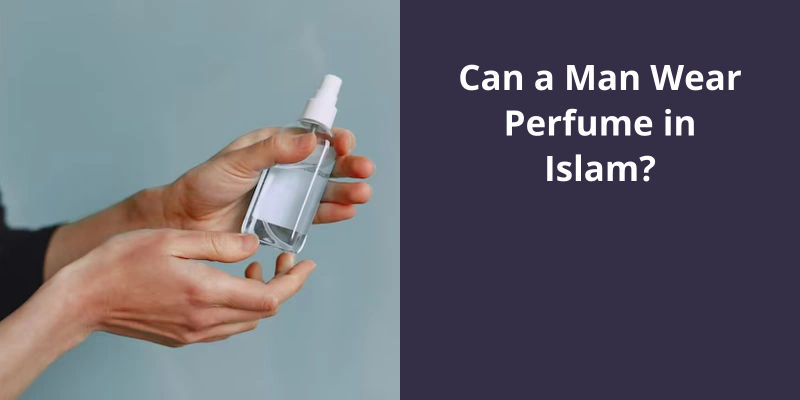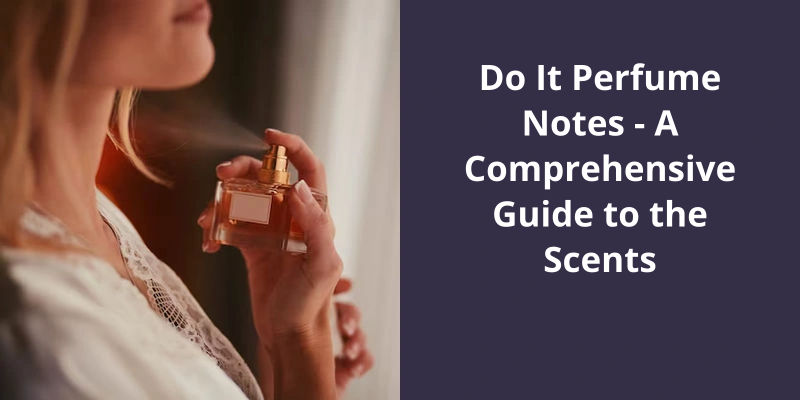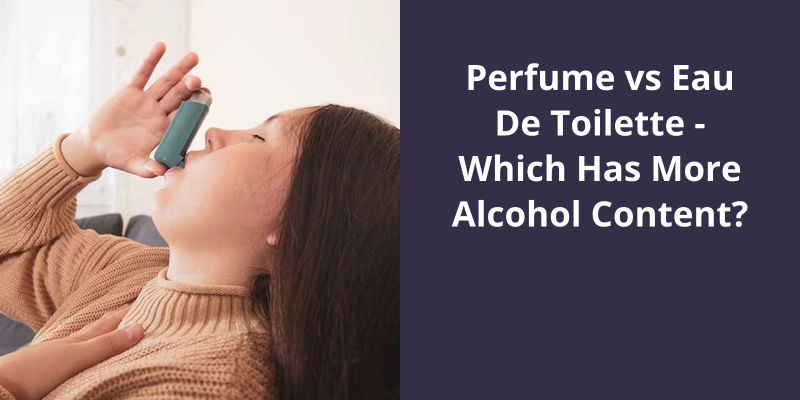Yes, a man can wear perfume in Islam. However, there are certain guidelines to follow. The perfume a man uses should not contain alcohol or any other haram (forbidden) ingredients. Also, the fragrance should not be too strong or resemble the scent specifically made for women. Essentially, while Islam permits the usage of perfume by men for cleanliness and presenting oneself well, it encourages wearing scents that are modest and not likely to attract undue attention or give a wrong impression.

Can I Wear Perfume While Praying Salah?
When it comes to wearing perfume while praying Salah, there are varying opinions among scholars within the Islamic community. Some scholars believe that wearing strong scents, including perfume, during prayer is discouraged because it may distract the worshipper or those around them. They argue that prayer is a time for complete focus and submission to Allah, and any external distractions should be minimized.
These scholars often refer to various hadith that specifically warn women against wearing perfume to the mosques. It’s believed that wearing strong scents in such a sacred place may lead to temptation or distraction for men who’re there to worship. Therefore, it’s generally advised that women refrain from wearing perfume when attending the mosque.
Perfume holds a special place in Islamic culture, with it’s pleasant aroma often considered a reflection of one’s cleanliness and hygiene in daily life. Recognizing this, the Halal Products Research Institute (HPRI) of Universiti Putra Malaysia has concluded that the use of alcohol, a common ingredient in perfumes, is in fact permissible under Islamic laws. This determination affirms that Muslims can embrace and enjoy the use of perfumes without compromising their religious beliefs.
Is Perfume Halal in Islam?
Perfume, a popular beauty product around the world, has often been a subject of discussion in relation to Islamic guidelines and regulations. To address this concern, it’s crucial to consult reputable sources and understand the principles behind Islamic teachings.
According to the Halal Products Research Institute (HPRI) of Universiti Putra Malaysia, which specializes in researching halal products and their compliance with Islamic laws, perfume is considered halal. HPRI has stated that the use of alcohol in products like perfumes is permitted under Islamic guidelines. This means that men, like women, can wear perfumes without violating any Islamic rules.
The argument supporting the permissibility of perfume in Islam is based on the fact that the alcohol used in perfumes isn’t intended for consumption. In Islamic jurisprudence, there’s a distinction between alcohol that’s consumed as an intoxicant and alcohol used in non-edible products like perfumes. The latter is considered permissible, as it doesn’t serve a purpose of intoxication.
Islamic teachings emphasize moderation in all aspects of life, including personal adornment, to maintain a balanced and humble lifestyle.
The distinction lies in the purpose and consumption of alcohol in products.
The Use of Alcohol in Other Beauty and Personal Care Products in Islam
In Islam, the use of alcohol is generally seen as prohibited. This is because alcohol is considered intoxicating and can impair one’s judgment. Therefore, it’s typically advised to avoid products containing alcohol, including beauty and personal care items.
Source: Right intentions: Why alcohol use in halal beauty and …
Perfumes and fragrances can add a touch of elegance and enhance one’s personal grooming, but when it comes to the holy month of Ramadan, some may wonder if wearing perfume is acceptable. Rest assured, wearing perfume during Ramadan is completely permissible, and it doesn’t invalidate the fast.
Is It OK to Wear Perfume in Ramadan?
Perfume has always been an integral part of human culture across different civilizations, and it’s usage has held various symbolic meanings throughout history. However, when it comes to matters of religion, questions often arise regarding the permissibility of certain actions. In the context of Islam, one common concern is whether it’s acceptable for a man to wear perfume during the holy month of Ramadan.
In fact, fragrance is considered a natural element of creation, and the act of wearing perfume doesn’t involve any harmful or forbidden actions.
Some individuals may argue that the strong scent of perfume could potentially distract others during their moments of worship. However, aromas and scents are part of our daily lives, be it through natural sources or artificial products. To single out perfume as a distraction would be unfair when considering the multitude of other scents present in our surroundings.
Moreover, it’s essential to acknowledge that Islam encourages personal hygiene and cleanliness. Wearing perfume can be interpreted as a means to maintain good personal hygiene, enhance ones self-confidence, and exhibit a pleasing appearance, which are all valued principles in Islam.
Nevertheless, it’s crucial to always exercise moderation in the application of perfume, especially in public settings or places of worship where the excessive use of fragrance might cause discomfort to others. As with any action, it’s a matter of balancing personal choices with social etiquettes, respecting the feelings and well-being of those around us.
The Use of Fragrances in Islamic Rituals and Practices, Such as the Use of Incense in Mosques
- The use of fragrances in Islamic rituals and practices, such as the use of incense in mosques, holds significant cultural and religious importance.
- In many Islamic traditions, the burning of incense is believed to purify the environment and create a sense of tranquility and spiritual elevation.
- Incense is commonly used during prayers, religious gatherings, and special occasions within the Islamic faith.
- The fragrance of incense is believed to invoke the presence of angels and enhance the connection between individuals and the divine.
- In mosques, incense is often burned to create a pleasant and sacred atmosphere for worshippers.
- The use of various fragrances, such as oud, amber, sandalwood, and rose, is common in Islamic rituals and practices.
- These fragrances are considered pleasing to both humans and spiritual beings, and are believed to promote a state of focus and devotion during prayer.
- Islamic communities may have specific preferences for certain types of incense or fragrances based on cultural traditions and regional influences.
- Fragrances also play a role in Islamic ceremonies, such as the application of perfume or scented oils before attending religious events or gatherings.
- The use of fragrances in Islamic rituals and practices is a beautiful and sensory aspect of the Islamic faith, enhancing the spiritual experience for believers.
Now that we’ve addressed the question of whether wearing perfume breaks a fast, it’s important to explore the topic of inhaling incense while fasting. While wearing perfume is generally acceptable, inhaling incense should be avoided due to it’s potential impact on the fasting state.
Is It OK to Spray Perfume While Fasting?
It’s a common question among Muslims whether it’s permissible to wear perfume while fasting. The general consensus among scholars is that wearing perfume doesn’t break your fast. However, there are certain precautions that need to be taken into consideration.
According to Islamic teachings, it isn’t permissible to inhale substances that may reach the stomach through the nose. This is because when fasting, anything that enters the body through the nose, mouth, or any other opening invalidates the fast. Therefore, it’s important to avoid inhaling any substances that may have particles that can reach the stomach.
In the context of perfume, the concern lies in the fact that some perfumes contain alcohol or other substances that may have vapors or particles.
It’s important to note that the primary focus of fasting in Islam is on abstaining from food, drink, and other physical actions that break the fast. While it’s important to be cautious and avoid any actions that may potentially invalidate the fast, it’s also important to maintain a balanced and practical approach.
However, it’s always best to consult with a knowledgeable Islamic scholar for specific guidance based on individual circumstances.
In fact, many fragrances are now being marketed as gender-neutral, allowing individuals to choose scents based on personal preference rather than societal norms. Whether it’s a floral bouquet or a woody fragrance, men can confidently explore the realm of perfumes without fear of judgment.
Is It OK for Guys to Wear Perfume?
There’s been some debate within Islamic communities about men wearing perfume. While some may argue that it isn’t permissible due to the concept of gender-specific scents, others believe that it’s perfectly acceptable. In Islam, there’s no specific prohibition against men wearing perfume or scents meant for women.
It’s important to note that historically, certain scents were considered more feminine or masculine. However, these associations are largely societal and can vary across different cultures and time periods.
In modern times, gender roles and stereotypes have been challenged and broken down. Men are now more open to exploring different scents and expressing their individuality through fragrance. Womens and mens perfumes often share many ingredients and the lines between them have become more blurred.
Ultimately, the choice of fragrance should be based on personal preference and how it makes one feel. Islam encourages cleanliness and modesty, but it doesn’t dictate specific rules on the types of smells one can use. As long as the fragrance doesn’t contain any haram (forbidden) ingredients, men can confidently wear any perfume they desire.
Conclusion
In fact, certain hadith interpretations emphasize the significance of wearing perfume, particularly when attending mosques. Ultimately, it’s up to individuals to exercise their judgment and seek guidance from religious scholars when making choices regarding perfume in accordance with Islamic principles. It’s essential to strike a balance between personal preference and adherence to the teachings and values of Islam.





